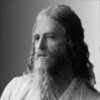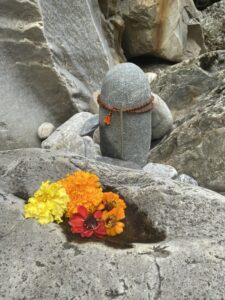The first of the great yoga masters to publicly travel to the West was Swami Vivekananda, who came to America in 1893 at the invitation of the Congress of Religious Liberals. He had accepted an invitation to speak at the Parliament of World Religions being held in Chicago as part of the World’s Fair. At the Congress, Swami Vivekananda was one of the last to speak, having been preceded by a multitude of theologians and clergy. When his turn came, he began his talk with these simple words, “My dear brothers and sisters ….”
Before he could go on, the audience spontaneously responded with a standing ovation that continued for several minutes. Those in attendance reported the collective exhilaration that caused them to offer their sustained applause, even before hearing Swami’s lecture. Vivekananda’s brief introduction was so potent because he recognized that those before him were, verily, his brothers, and sisters. His words rang out with truth. He spoke as one with authority.
A little more than a century since then, we find ourselves living in a fictional world. We do not expect truth from our political leaders, we know advertisers lie about their products, the Hollywood stars we admire are actors, and we rightly sense that many of those in the pubic arena use their personal charisma to exploit others. It seems we cannot trust our government, our business leaders, or even the guy who fixes our car. Worst of all, few of us feel in our hearts that our religious leaders have had a direct experience of the reality of God and can provide us with the same opportunity.
The point is not that the world is filled with terrible liars. The point is simply that we have come to accept falsity as a norm, and this has dulled our ability to recognize authentic authority. Exaggeration and game playing have probably always been parts of the human experience of business, politics, and flirtation, but they have no place in spirituality.
The slick purveyors of religions promising easy access to heaven or the threat of eternal damnation have left many intelligent people turned off to the entire realm of spirituality. But just as counterfeit gold implies the existence of the real thing, likewise do religious hucksters exist as the shadow of valid paths to a genuine religious experience. It is important that we not use the prevalence of phony teachers as an excuse to avoid the work we must do to grow spiritually.
In the epic myth, the Ramayana, there is an apt parable regarding authority. Princess Sita had been kidnapped by the evil Ravana, and she was held captive in a grove near his palace. Her husband, Prince Rama, had sent his emissary, Hanuman, to search for his missing wife. Hanuman eventually finds Sita and tells her that he has been sent by her loving husband who will soon rescue her.
Sita, however, had doubts about Hanuman’s true identity. After all, she thought, he could be one of Ravana’s evil partners, disguised and lying. Hanuman, as if sensing her distrust, showed Sita a ring he possessed, which was a symbol of authenticity and power given him by Rama. Sita was overjoyed to realize that Hanuman was truly a friend who could be counted on and that she had not been forsaken, but was soon to be reunited with her beloved.
Symbolically, Rama is God and Hanuman is the spiritual teacher. We are all Sitas, individual souls, isolated and pressured by the wicked Ravana, our egos. Yet in spite of this repression, we still long for a reunion with our beloved, God. We learn of the reality of God’s love from one “possessing the ring of Rama,” one whose personal experience grants authority. At first, we doubt, but little by little we come to trust in the teacher and teachings, and all worldly difficulties dissolve in the light of our own direct spiritual experiences. We practice spiritual disciplines while patiently waiting for reunion with our beloved; the mystical marriage of the individual soul with God, the one Self. This is the cosmic romance of which the mystics speak, and the apex of the human experience.
Many of us in the West have taken the notion of autonomy to an unhealthy extreme, denying our need for a teacher, an accomplished authority. The spiritual path is such a razor’s edge and the ego such a subtle phenomenon that it is impossible for ordinary people like ourselves to attain Self-realization without the instruction, inspiration, and grace of a teacher. As far as I am concerned, the likelihood of anyone I have ever met achieving realization without a teacher is about the same as their beating Michael Jordan in a game of one-on-one. I suppose they could get very lucky and beat Mike, but any gambler would be happy to wager against them.
It is wonderful to learn that spiritual truth exists and there are honest people who will share it with us. These beings live for that purpose only, to bring the perennial wisdom to suffering human beings. To come into the presence of such a being is the greatest possible blessing. If you are fortunate enough to have come to an authentic teacher, regardless of a particular tradition or sect, I encourage you to drink at the fountain of their wisdom and apply their teachings to your life. If you achieve the purpose of their instruction, you too will become one with spiritual authority, born out of your own direct experience.




